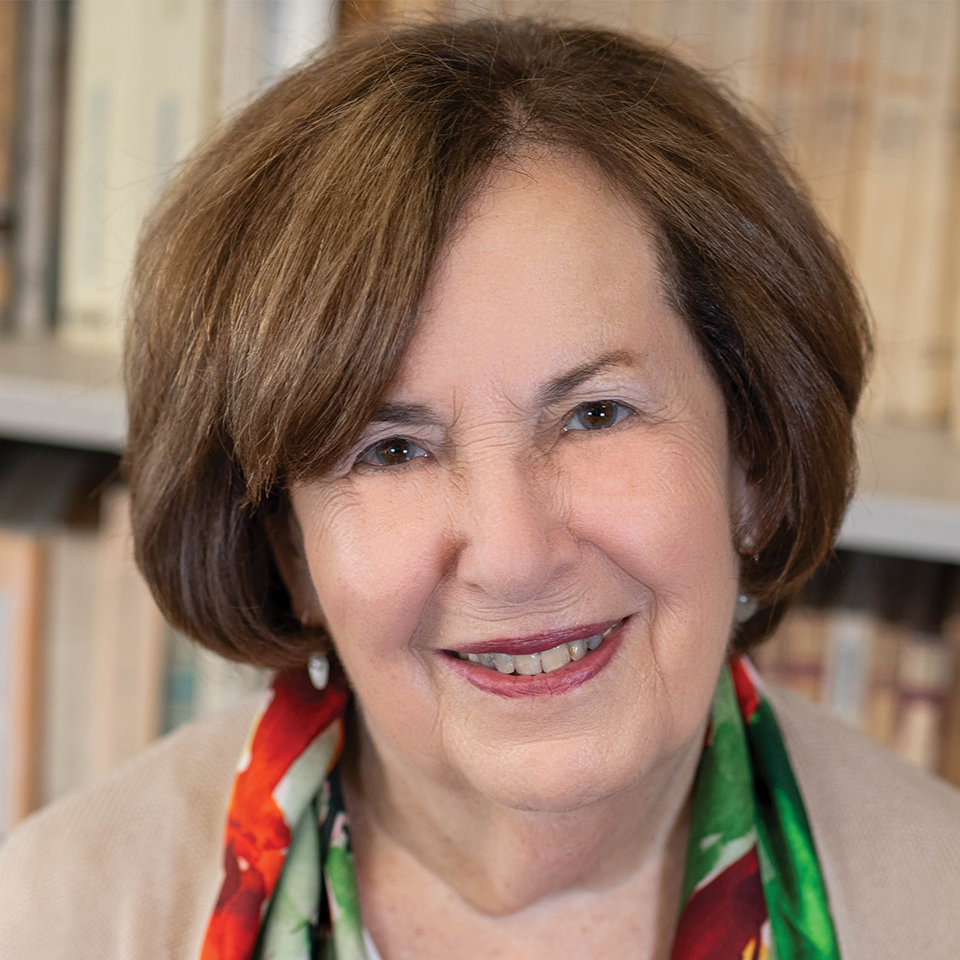Subjects
Subjects taught the current academic year:
21L.020[J] Globalization: The Good, the Bad and the In-Between (Fall 2024)
Subjects taught in recent years:
21L.020[J] Globalization: The Good, the Bad and the In-Between (Spring 2023)
21L.590 The Spanish Incubator (IAP 2024)
21L.590 The Spanish Incubator (IAP 2023)
21L.640[J] The New Spain: 1977-Present (Spring 2024)
Research Interests
An abiding interest of mine has been the way in which gender—specifically, the constraints placed on women entering predominantly male institutions–has determined women’s lives and careers. My oral history project on MIT’s women graduates makes clear the determination and resilience of the early female graduates of the Institute, who often met barriers to their education. The Margaret MacVicar/AMITA Women’s Oral History Project has produced records of women’s experiences as they navigated the often-hostile reaction to their presence at MIT. That record, now including more than 100 oral histories, digitized and preserved by the MIT archives, is available to researchers worldwide who study the history of women in science and engineering and/or the history of MIT as an institution. At MIT, I conducted a study, over several years, of women Ph.D. candidates to understand why women, at a much higher rate than men, left academic careers. That research led to a study at Harvard Medical School of women in academic medicine to identify the barriers to women’s promotion within that system.
Finally, I am deeply committed to teaching. I am interested in innovative pedagogy at every level of education and have worked as a consultant to improve elementary and high school learning. I taught in Teachers as Scholars, a program that brings high school teachers to study with university professors, and worked with the Woodrow Wilson Foundation on funding for that endeavor. I have taught faculty here and in Spain about pedagogical innovation at the college level and continue to exchange pedagogical ideas internationally through my work at the Instituto Internacional in Madrid.
Publications
Women Writers in Translation: An Annotated Bibliography, 1954-1981. New York: Garland Press. Co-edited with Isabelle de Courtivron. 1984.
Pedro Garfias, De Soledad y Otros Pesares. Madrid: Editorial Helios. 1971.
Oral History:
More than 100 Oral Histories of MIT Women deposited in the MIT archives. This collection constitutes the most complete record of MIT’s women graduates available to researchers studying the history of women in science, technology, architecture, humanities and social sciences in a technologically focused university. It also presents new, accessible and usable data on the history of women at MIT as an institution. The archives are digitized and available to the public. Histories include those of the 3 women in the Class of 1922.
Articles and Papers in Referenced Journals
1994 “Transgresiones, digresiones e invenciones: La trayectoria poetica de Pedro Garfias,” Serie literatura del exilio, Colegio de Mexico, Mexico. pp. 193-204.
1982 “At the Whirlpool’s Rim: The Voice of Pedro Garfias in the Generation of 1927,” (An Homage to Stephen Gilman), Revista de Estudios Hispánicos, Río Piedras, Puerto Rico, núm. 25, pp. 187-95.
1978 “La inteligencia audaz: vida y poesía de Concha Méndez,” Papeles de Son Armadans, Barcelona, (February), pp. 131-46.
1977 “Los Usos de la biografía: El Caso de Pedro Garfias,” El Zaguán, México, D.F., no. 4 (Summer), pp. 59-66.
1977 “La poesía española y el desafío de la historia,” Revista de la Universidad de México, México, D.F., 31 (December-January), pp. 36-49.
Chapters in Books
1993 “Carmé Riera,” in Women Writers of Spain, Greenwood Press, 1993, pp. 404-415.
Reviews
1985 Humberto Costantini, The Long Night of Francisco Sanctis and Luisa Valenzuela, Other Weapons, in The New York Times Book Review (October 6), p. 38.
1979 Yvette Miller and Charles Tatum, eds., Latin American Women Writers: Yesterday and Today, in Review 25-26 (Fall), pp. 139-41.
1976 Andrew P. Debicki, La Poesía de Jorge Guillén, in Modern Language Quarterly 37 (March), pp. 103-06.
Other
2021 “Real Madrid,” Technology Review, May, 2021.
1989 “Endowing Unpopular Causes with Credibility and Cash: Katharine Dexter McCormick,” Technology Review, August/September 1989.
Awards
Omega award for faculty service
MacVicar Faculty Fellow
Elected an honorary MIT alum
Elected the first honorary member of AMITA (Association of MIT Alumnae)
Talks
April 2021 “Katharine Dexter McCormick: A Voice of Her Own”. MIT Honorary League, MIT
April 2020 “Nineteenth Century American Women and the Global Enterprise: The International Institute for Girls in Spain” Wellesley College invited speaker at a conference on American Women and International Education In-person cancelled because of COVID; talk delivered via zoom.
Jan. 2020 “In Her Own Words: MIT’s Women Pioneers” MIT Club of Spain, Madrid
Nov. 2019 “Cultural norms, cyber-transgressions and internet bullying: Spain and the U.S.” Madrid. Speaker; organized and moderated conference.
June 2018 “Women Documentary Film Makers: Spain and the U.S.” Instituto Internacional, Madrid. Organized and moderated conference.
Jan. 2017 “La larga historia de ‘El Mito de tenerlo todo’ Instituto de la Mujer, Madrid
Jan. 2016 “In Her Own Voice: MIT’s Earliest Women Scientists” Centro Nacional de Investigaciones Ocológicos, Madrid
Jan. 2016 “Pathways and challenges of American Colleges” International Institute, Madrid
March 2015 “Women Changing the World: Lives in Science and Technology” Round- table: Martha Gray (MIT), Isabela del Alcázar (Instituto de Empresa), María Luaces, (CNIO), Madrid, Instituto Forum
Oct. 2015 “Borders and Barriers: Challenges for Refugee Women: Spain/USA” Madrid, U.S. Embassy forum

